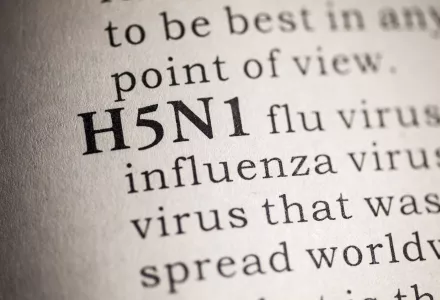
The recent Harvard seminar titled "Understanding the Threat of Bird Flu (H5N1)" brought together luminaries in the field, offering profound insights into the complexities surrounding the H5N1 virus. The insights shared by David Quammen, Dr. Carlos del Rio, Dr. Neil Vora and Dr. Syra Madad, not only deepened understanding but also highlighted the urgent need for a multifaceted approach to tackle this looming threat.
David Quammen, a notable author, underscored a pivotal challenge - combating public "virus fatigue" and the growing distrust in science. In the wake of COVID-19, the public's skepticism towards scientific guidance has heightened. Quammen poignantly noted, “One of the most dangerous aspects of the current situation...is virus fatigue among the general public and distrust of science.” This statement hits at the core of the problem; bridging the gap between scientific knowledge and public perception is crucial for effective disease management.
Dr. Carlos del Rio emphasized the vulnerability of our current systems to a potential avian influenza pandemic. He insightfully remarked, “We are not as prepared as we should be...this pandemic fatigue...makes us extremely vulnerable.” His words serve as a clarion call for the global community to bolster our preparedness and response mechanisms against such threats.
Dr. Neil Vora shared the role of human activities in the emergence of zoonotic diseases. He stresses the importance of investing in prevention strategies alongside preparedness efforts. He stressed that “infectious diseases are increasingly emerging because of human activities,” highlighting the intricate connection between human action and the natural world. This perspective is a reminder of the need for a paradigm shift in how we interact with our environment to prevent future pandemics, advocating for a holistic approach to pandemic prevention.
Dr. Syra Madad, the moderator, brings attention to various aspects of the H5N1 threat, including the current epidemiological picture with clade 2.3.4.4b HPAI A(H5N1) viruses, and the need for global surveillance and preparedness. As stated by The Centers for Disease Control and Prevention "Currently, HPAI A(H5N1) viruses circulating in birds are believed to pose a low risk to the general public in the United States; however, people who have job-related or recreational exposures to infected birds may be at higher risk of infection and should take appropriate precautions.” Madad adds how “the threat is real, and the stakes are too high to ignore.”
The seminar also spotlighted the role of healthcare providers in early detection and response. The insights from the panelists underscored the importance of vigilance and curiosity in healthcare settings. As Carlos del Rio advised, healthcare providers should always "be curious, and look for the unusual.” This proactive approach in clinical settings can be pivotal in early detection and containment of outbreaks.
A crucial takeaway from the seminar is the need for global collaboration and equity in addressing health threats. Dr. Neil Vora highlighted the inequities in resource distribution and the consequences of a unilateral focus on post-spillover interventions. He argued for a holistic approach, one that includes investments in prevention and preparedness on a global scale.
Moreover, the seminar shed light on the importance of science communication. Quammen’s advocacy for storytelling in science to engage the public effectively is a novel approach that could bridge the gap between complex scientific information and public comprehension. This approach is crucial in an era where misinformation can spread rapidly, often overshadowing scientific facts.
The seminar on H5N1 was a crucial conversation at a time when the world is grappling with pandemic threats. The collective wisdom of the panelists points towards an integrated approach encompassing scientific research, effective communication, global collaboration, and proactive healthcare responses. As we navigate the uncertainties of re-emerging diseases like H5N1, lessons from such forums are invaluable in shaping our strategies and policies. The seminar leaves us with a compelling thought: the battle against infectious diseases is not just a scientific challenge but also a test of our collective resolve to learn, adapt, and collaborate.
Madad, Syra. “Navigating the Complexities of Bird Flu (H5N1): Highlights from H5N1 Seminar.” January 18, 2024


